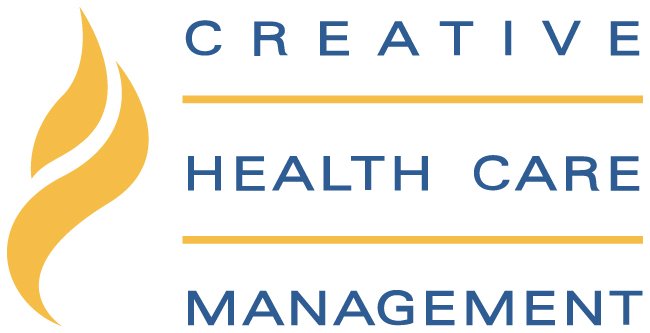Are you a registered nurse looking to take your career to new heights? As a Charge Nurse, you can explore new opportunities in nursing leadership roles that offer not only increased responsibilities but also greater job satisfaction, salary potential, and professional growth. Charge Nurses and Nurse Managers are two highly sought-after positions in the nursing field. CHCM has the pleasure of working with both in medical settings and helping organizations create paths for leadership positions. This article is written highlight the differences, similarities, and pathways to these rewarding upper management positions.
Key Takeaways
- Charge Nurses and Nurse Managers have similar roles with support staff, but their responsibilities, educational requirements & patient interaction differ.
- Pursuing a managerial roles in nursing care brings job satisfaction, higher salary potential & growth opportunities with strong job outlook.
- To be successful as a leader you need an RN license plus experience/education plus essential skills such as communication & conflict resolution.
Charge Nurse: Role and Responsibilities

A Charge Nurse most often oversees the nursing unit operations, provides patient care, and acts as a liaison. Your strong communication, organization, and leadership skills will be put to the test as you manage staffing needs, monitor and order medical supplies, and help other nurses with complex cases.
Charge Nurses are highly valued in various health care facilities, including nursing homes, urgent care clinics, medical facilities, and of course within all hospitals. Their expertise is essential in maintaining the smooth operation of any health care facility, making them an important part of nursing personnel and health care jobs.
Key Skills for Charge Nurses
To succeed as a Charge Nurse, you must possess a unique skill set that includes:
- Compassion
- Problem-solving
- Critical thinking
- The ability to stay calm under pressure
Compassion is key in developing strong connections with patients and creating a caring atmosphere. Problem-solving, on the other hand, helps you tackle complicated scenarios, make quick decisions, and deliver the best possible patient care.
With a combination of these skills, Charge Nurses can manage patient assignments and support their staff members effectively.
Educational Requirements and Experience
The education required to become a Charge Nurse should ideally include an advanced degree such as a Bachelor of Science in Nursing (BSN), as it provides a strong foundation in health care knowledge and skills. No specific certifications are necessary for this role, but having experience working with nursing staff or additional certifications specific to patients specialty or basic life support can be advantageous.
Nurse Manager: Role and Responsibilities

Unlike Charge Nurses, Nurse Managers assume more administrative duties and personnel supervision. They ensure clinical excellence by:
- Coordinating with other departments, such as doctors, social workers, therapists, pharmacists, and support staff
- Overseeing patient admissions
- Working closely with upper management to communicate improvements and act as the voice of their nurses in those discussions.
With a median annual salary of $99,730, this position is both rewarding and lucrative.
Key Skills for Nurse Managers
Excelling as a Nurse Manager requires the ability to demonstrate clinical excellence as well as strategic planning, budgeting, human resources management, and effective communication.
Maintaining a high-quality nursing practice and achieving professional goals necessitate strategic planning skills. These encompass:
- Strong critical thinking
- Problem-solving
- Decision-making
- Resource management
Educational Requirements and Experience
Nurse Managers typically have advanced education with degrees, such as a Master of Science in Nursing (MSN) or a Master of Business Administration (MBA), which equip them with the necessary knowledge and skills for their role.
Some Nurse Managers are referred to as Health Services Managers. They must have several years of experience in a clinical setting and in management or leadership roles. Some may also hold unit-specific certifications to further enhance their expertise.
Nurse managers fall into high demand as they specialize in other administrative duties and responsibilities while handling safety compliance, staffing shortages, and work schedules.
Comparing Charge Nurses and Nurse Managers
While both Charge Nurses and Nurse Managers share similarities in guiding and supporting their nursing staff, they differ in daily responsibilities, patient interaction, and education requirements. Charge Nurses primarily oversee nursing unit operations during their shift, while Nurse Managers have broader oversight across multiple locations and shifts.
In terms of academics, Charge Nurses typically hold a BSN degree, whereas Nurse Managers often possess advanced degrees like an MSN or MBA.
Advantages of Pursuing a Leadership Role for Nurses
Numerous advantages accompany the pursuit of a leadership for nurses, including increased job satisfaction, higher salary potential, and opportunities for professional growth. Taking on additional responsibility and leadership can lead to a more fulfilling and rewarding nursing career.
Additionally, the demand for competent nurses is high, with a projected shortage of RNs through 2030, making it a wise career choice with excellent job outlook and stability.
Pathways to Becoming a Charge Nurse or Nurse Manager
The journey towards becoming a Charge Nurse or Nurse Manager begins with acquiring RN licensure, accomplished by completing an accredited program and passing the NCLEX-RN exam. Once you have gained the necessary experience (usually at least three years), you can begin developing your leadership skills and pursuing the required academic path, such as a BSN for Charge Nurses or an MSN or MBA for Nurse Managers.
Impact of Magnet Designation on Nurses in Leadership

Earning a Magnet designation, a prestigious recognition, has a positive impact on nurse leaders. It attracts and retains a strong nurse workforce while promoting a culture of excellence. Organizations with Magnet designation have experienced improved clinical outcomes, decreased turnover rates, and increased job satisfaction for Nurse Managers, and a more positive organizational culture and patient outcomes.
Magnet designation not only benefits nurse leaders but also enhances the overall quality of patient care and nursing practice.
Preparing for a Successful Career as a Registered Nurse
A successful career as a registered nurse requires continuous learning, networking, and pursuit of professional development opportunities. Developing essential skills such as time management, conflict resolution, critical thinking, communication skills, emotional intelligence, integrity, dedication to excellence, and having a global perspective will help you excel as a Charge Nurse or Nurse Manager.
Keeping abreast of the latest healthcare advancements and nurturing professional growth will establish you as a reliable resource and leader in the field.
Summary
In conclusion, Charge Nurses and Nurse Managers are both rewarding and challenging nurse position roles with distinct responsibilities, skills, and education requirements.
Pursuing these positions can lead to increased job satisfaction, higher salary potential, and numerous opportunities for professional growth. To succeed in nursing leadership, continuously develop your skills, network with other professionals, and seek opportunities for advancement. Your dedication and hard work will not only benefit your career but also contribute to improved patient care and nursing practice.
Creative Health Care Management (CHCM)
Creative Health Care Management (CHCM) is a healthcare consulting firm with staff members and consultants familiar with the clinical setting and services required for Charge Nurses and the Nurse Manager.
Working with Health Services Managers and Chief Nursing Officers for many years, we enjoy other nurses and help guide Nurse Managers within an organization, achieve successful outcomes and implement clinical experience for staff nurses and medical professionals.
Frequently Asked Questions
Is a charge nurse higher than a nurse?
Charge nurses are registered nurses (RNs) with more experience and training than regular nurses, so they have a higher level of responsibility. Charge nurses provide patient care and also have administrative responsibilities, while nurse managers focus more on administrative roles. On average, charge nurses in the US earn an annual salary of $73,298.27 which is more than a regular nurse earns.
What is the difference between nurse and charge nurse?
Charge nurses are registered nurses (RNs) with additional training and experience, who take on the role of leading a nursing team. They call upon both clinical and managerial skills to care for patients while also providing guidance and oversight to other nurses.
Is being a charge nurse a big deal?
Being a charge nurse is a big deal as it requires a great deal of knowledge and expertise in both patient care and leadership. It’s considered an important step in nursing, with many facilities hiring or promoting team members specifically for this role. Charge nurses are also expected to manage problems while juggling administrative tasks and addressing any sudden issues that may come up.
What are the main differences between a Charge Nurse and a Nurse Manager?
Charge Nurses are responsible for a single shift’s operations while Nurse Managers oversee multiple shifts and locations. Charge Nurses typically hold a BSN degree, whereas Nurse Managers often possess more advanced degrees such as an MSN or MBA.
What is the recommended education for Charge Nurses and Nurse Managers?
Charge Nurses should have a BSN degree, and Nurse Managers need an MSN or MBA for optimal success.
Sources:
https://www.nursingworld.org/resources/individual/charge-nurse-vs-nurse-manager/
https://www.coursera.org/articles/charge-nurse
https://online.hpu.edu/nursing/masters-nursing/careers/charge-nurse-vs-nurse-manager
https://online.carlow.edu/resources/article/how-to-become-a-charge-nurse/


